April was a busy month. We had the announcement of the Stella Prize and of short or longlists for other major awards. I’ll discuss all these in their own “awards” section below. However, it’s interesting to see that in the all-gender (as against women-only) awards, books by women represent over 50% of all the four short and longlists. Are we seeing another flowering of women’s writing? And if so, will it be sustained this time around? On past experience, it will only be sustained if we keep reading and buying their books. Hence, the importance of initiatives like this challenge.
April Showers …
Actually, where I live we had way too few April showers, but a shower of 36 reviews here kept me happy! They covered 27 authors, for 29 different books. Two highlights are:
- Our most reviewed author for the month was, again, Elizabeth Harrower, with four reviews for her short story collection, A few days in the country: And other stories. She was followed closely by Annah Faulkner with three reviews for two books, and Fiona Wright with three reviews for her essay collection, Small acts of disappearance.
- Top-reviewers for the month were Jennifer Cameron-Smith with six reviews, and Kim Forrester (Reading Matters) with five. Kelly (Orange Pekoe) and I (Whispering Gums) followed with three reviews each.
The Classics
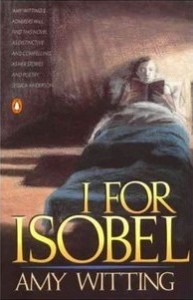 Five classics were reviewed last month, and now three this month. Great going folks! As two have been reviewed a few times and featured here before – Miles Franklin’s My brilliant career and Madeleine St John’s The women in black, I’ll focus on the other one in this post.
Five classics were reviewed last month, and now three this month. Great going folks! As two have been reviewed a few times and featured here before – Miles Franklin’s My brilliant career and Madeleine St John’s The women in black, I’ll focus on the other one in this post.
Amy Witting’s I is for Isobel has only been reviewed twice for the challenge – back in 2013 and now, in April, by our challenge founder Elizabeth Lhuede. Elizabeth was impressed, describing Isobel as not always likeable engaging nonetheless. She writes:
The book reaches a gentle crescendo when Isobel returns to the suburb she grew up in and comes face to face with an old foe. The encounter reduces her – and me – to tears.
Annah Faulkner
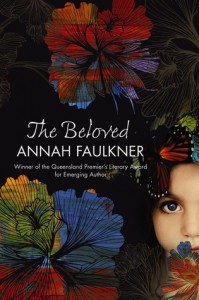 An author whom I haven’t featured in my round-ups before is Annah Faulkner. Her debut novel The beloved was published to some acclaim in 2012. It was shortlisted for the Miles Franklin Award, and won the Nita Kibble Award. Two people reviewed it this month: Jennifer Cameron-Smith and Anna (both on GoodReads), with Jennifer also reviewing her latest novel Last day in the dynamite factory. Anna described the Papua New Guinea-set The beloved as “a vibrant, beautifully written coming of age story with compelling characters”. She liked the imagery, and the fact that the characters evolve as the novel progresses. Jennifer liked Last day in the dynamite factory, which is about an unsettled middle-aged man, saying that once she picked it up she “couldn’t bear to put it down”. Faulkner sounds like a writer to watch.
An author whom I haven’t featured in my round-ups before is Annah Faulkner. Her debut novel The beloved was published to some acclaim in 2012. It was shortlisted for the Miles Franklin Award, and won the Nita Kibble Award. Two people reviewed it this month: Jennifer Cameron-Smith and Anna (both on GoodReads), with Jennifer also reviewing her latest novel Last day in the dynamite factory. Anna described the Papua New Guinea-set The beloved as “a vibrant, beautifully written coming of age story with compelling characters”. She liked the imagery, and the fact that the characters evolve as the novel progresses. Jennifer liked Last day in the dynamite factory, which is about an unsettled middle-aged man, saying that once she picked it up she “couldn’t bear to put it down”. Faulkner sounds like a writer to watch.
Biographies and Memoirs
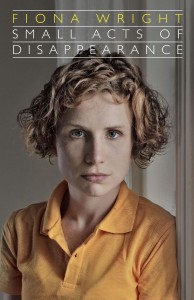 Five reviews, across three books, were posted this month for “History, biography and memoir” with a literary bent. Fiona Wright’s Small acts of disappearance received three reviews so let’s start with it. As a collection of essays, which can, in fact, be read individually, it’s an unusual form for a memoir. However, because the essays all deal with hunger and her experience of anorexia nervosa, they do, in combination, work effectively as a memoir.
Five reviews, across three books, were posted this month for “History, biography and memoir” with a literary bent. Fiona Wright’s Small acts of disappearance received three reviews so let’s start with it. As a collection of essays, which can, in fact, be read individually, it’s an unusual form for a memoir. However, because the essays all deal with hunger and her experience of anorexia nervosa, they do, in combination, work effectively as a memoir.
Kim (Reading Matters) describes it perfectly:
it’s an enlightening, easy-to-read memoir, filled with beautiful language and turns of phrase (as well as being a journalist, Wright is a celebrated poet), which puts the disease into a social, cultural, historical and medical context.
Angela (Welcome to my Library) nails its tone when she writes that it “is powerful writing but not overbearing or bossy, in fact there is a resigned sadness that permeates much of it.” But this sadness, as Kim says, does not translate into something that is “maudlin, introspective, self-indulgent”. Kate (booksaremyfavouriteandbest) also admired it but expressed some reservations and qualms. She found the essay structure affected its impact:
However, as potentially stand-alone essays, key concepts must be repeatedly established, which can make the language seem repetitive and can read as a tiny, tiny bit self-obsessed …
Kate worries about Wright’s admission “that she misses the simplicity of her illness”, that “her hunger protected her from other emotions”, in terms of her ability to recover. Fair concern, and one which clearly bothers Wright herself.
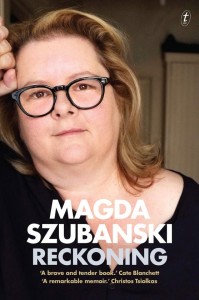 The other memoir reviewed this month was Magda Szubanski’s Reckoning. Simone (Great Aussie Reads) explains that this book was not at all what she expected, but she enjoyed it for all those things she didn’t expect. She concludes that:
The other memoir reviewed this month was Magda Szubanski’s Reckoning. Simone (Great Aussie Reads) explains that this book was not at all what she expected, but she enjoyed it for all those things she didn’t expect. She concludes that:
It would have been an interesting story even if it had not been written by one of our best known celebrities, but Magda’s own history certainly added an element to the book.
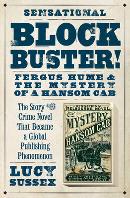 The fifth review in this category is not for a memoir, but a history-cum-biography, Lucy Sussex’s Blockbuster!: Fergus Hume and The mystery of the hansom cab. It was reviewed by Karen Chisholm for the Newtown Review of Books. For those of you who don’t know it, Fergus Hume’s novel, The mystery of a hansom cab, was an 1880s publishing sensation in Australia and Europe. Lucy Sussex sets out to explore what made it so, by researching both the writer’s life and the publishing and marketing practices of the time. Chisholm calls the work “intriguing” and meticulously researched. Sounds great to me!
The fifth review in this category is not for a memoir, but a history-cum-biography, Lucy Sussex’s Blockbuster!: Fergus Hume and The mystery of the hansom cab. It was reviewed by Karen Chisholm for the Newtown Review of Books. For those of you who don’t know it, Fergus Hume’s novel, The mystery of a hansom cab, was an 1880s publishing sensation in Australia and Europe. Lucy Sussex sets out to explore what made it so, by researching both the writer’s life and the publishing and marketing practices of the time. Chisholm calls the work “intriguing” and meticulously researched. Sounds great to me!
Around the awards
 You’ve probably heard by now, but just in case you haven’t, here’s the news: Charlotte Wood won the 2016 Stella Prize with her widely acclaimed novel The natural way of things. Not surprisingly, given the accolades, it’s been popular with our Challenge, having been reviewed 10 times this year (so far).
You’ve probably heard by now, but just in case you haven’t, here’s the news: Charlotte Wood won the 2016 Stella Prize with her widely acclaimed novel The natural way of things. Not surprisingly, given the accolades, it’s been popular with our Challenge, having been reviewed 10 times this year (so far).
Continuing the women writers’ theme, the longlists were announced for two other women writers awards:
- The Kibble, for life writing by established writers: Debra Adelaide’s The women’s pages, Tegan Bennett Daylight’s Six bedrooms, Elizabeth Harrower’s A few days in the country: and other stories, Gail Jones’ A guide to Berlin, Drusilla Modjeska’s Second half first, Charlotte Wood’s The natural way of things, and Fiona Wright’s Small acts of disappearance.
- The Dobbie, for life writing by debut authors: Shirley Barrett’s Rush Oh!, Anna Broinowski’s The director is the commander, Sonja Dechian’s An astronaut’s life, Amanda Hickie’s An ordinary epidemic, Magda Szubanski’s Reckoning: a memoir, Lucy Treloar’s Salt Creek, and Lesley and Tammy Williams’ Not just black and white.
The shortlists were also announced in April for the NSW Premier’s Literary Awards. There are ten categories, but the main three of interest to my area are:
- Christine Stead Award. Four of the six shortlisted novels are by women: Melinda Bobis’ Locust girl: a love song, Lisa Gorton’s The life of houses, Gail Jones’ A guide to Berlin, and Mireille Juchau’s The world without us.
- UTS Glenda Adams Award for New Writing. Four of the six shortlisted novels are by women: Sonja Dechian’s An astronaut’s life, Antonia Hayes’ Relativity, Eliza Henry-Jones’ In the quiet, and Abigail Ulman’s Hot little hands.
- The new biennial Indigenous Writers Award. Four of the six shortlisted novels are, again, by women: Ali Cobby Eckermann’s Inside my mother, Natalie Harkin’s Dirty words, Ellen van Neerven’s Heat and light, and Lesley and Tammy Williams’ Not just black and white.
Finally, the Miles Franklin Award. Five of the nine-strong longlist for the 2016 Miles Franklin Award are by women: Peggy Frew’s Hope farm, Myfanwy Jones’ Leap, Mireille Juchau’s The world without us, Lucy Treloar’s Salt Creek, and Charlotte Wood’s The natural way of things.
If you’ve got through all this, you’ll see some books and authors appearing in more than one list. Most have been reviewed for the challenge but some haven’t, so I’m going to dot point them to make them stand out!
- Melinda Bobis’ Locust girl: a love song
- Anna Broinowski’s The director is the commander
- Sonja Dechian’s An astronaut’s life
- Natalie Harkin’s Dirty words
- Lesley and Tammy Williams’ Not just black and white
Can you help out with any of these?
Meanwhile, apologies for the extra length this month. You’re a champion if you made it through! However, I did want to document the awards, as we don’t currently have a contributor specifically looking after awards.
———————
About Me
I am Whispering Gums and I read, review and blog about (mostly) literary fiction. It was reading Jane Austen when I was 14 years old that turned me on to reading literary fiction/classics, which is why I am here today doing this round-up! Little did Jane know what she started!
My love of Aussie literature started with Banjo Paterson’s ballads and Ethel Turner’s Seven Little Australians in my childhood. But, I didn’t really discover Australian women’s writing until the 1980s when I “met” and fell in love with Elizabeth Jolley, Thea Astley, Olga Masters, Helen Garner and Kate Grenville. Ever since then I have been making sure to include a good percentage of Australian (and other) women writers in my reading diet.






Wonderful wrap up as always Sue but I’m going to ask a stupid question here. What is the definition of life writing. To my mind books like Salt Creek don’t fit into my definition.
I agree on both accounts Deb.
A great round up and Salt Creek, to my mind, is literary historical fiction.
And thanks Sue for the subtle challenge to us all to read your dot pointed books 🙂
Haha, Brona. So glad you got my SUBTLE point!!
I wondered about life writing as well. Does the inclusion of A guide to Berlin in that category imply thatGail Jones and her friends covered up a murder? I assume not
Thanks Debbie, Brona and Jonathan. Sorry about the delay in replying. I scheduled this post two weeks ago as I was touring Lake Eyre last week where – except for 2 hours in Birdsville – we had no internet connections. (And we complain about my suburb not having NBN!!)
Anyhow, good questions. I’ve frequently thought over the years I’ve been watching them that these awards – the Kibble and Dobbie – interpret “Life writing” very broadly. This is what they say:
“The Awards recognise the works of female authors of fiction or non-fiction classified as ‘life writing’. This includes novels, autobiographies, biographies, literature and any writing with a strong personal element.”
I suppose the “life” doesn’t have to be a present life? Traditionally, as I understand it, “life” writing encompasses biography and autobiography, so I suppose the fact that these awards extend to fiction means that the work could be autobiographical fiction or fiction about other lives, past or present (just like biography can be). It’s hard to think what book wouldn’t be life writing under the broad definition above. (But I haven’t read the examples you’ve all given.) What do you think?
Nita Kibble and her niece Nita May Dobbie were librarians in the early to mid twentieth centuries. Dobbie endowed the awards via her will wanting to support women’s writing. I’m not sure how she framed it in her will.
Thanks for following that up, Sue. It’s an extraordinarily broad definition, isn’t it? So broad as to make the word ‘life’ almost redundant.
Thanks Jonathan. But, yes, I’ve thought the same. In the end, I guess, I wonder whether it matters. But, I wonder if any book has been rejected for not being “life writing”.